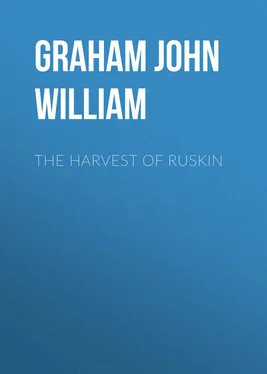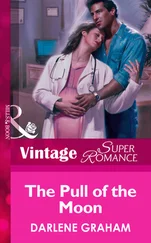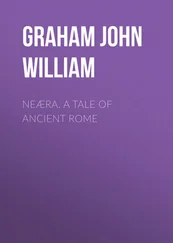John Graham - The Harvest of Ruskin
Здесь есть возможность читать онлайн «John Graham - The Harvest of Ruskin» — ознакомительный отрывок электронной книги совершенно бесплатно, а после прочтения отрывка купить полную версию. В некоторых случаях можно слушать аудио, скачать через торрент в формате fb2 и присутствует краткое содержание. Жанр: literature_19, foreign_antique, foreign_prose, на английском языке. Описание произведения, (предисловие) а так же отзывы посетителей доступны на портале библиотеки ЛибКат.
- Название:The Harvest of Ruskin
- Автор:
- Жанр:
- Год:неизвестен
- ISBN:нет данных
- Рейтинг книги:5 / 5. Голосов: 1
-
Избранное:Добавить в избранное
- Отзывы:
-
Ваша оценка:
- 100
- 1
- 2
- 3
- 4
- 5
The Harvest of Ruskin: краткое содержание, описание и аннотация
Предлагаем к чтению аннотацию, описание, краткое содержание или предисловие (зависит от того, что написал сам автор книги «The Harvest of Ruskin»). Если вы не нашли необходимую информацию о книге — напишите в комментариях, мы постараемся отыскать её.
The Harvest of Ruskin — читать онлайн ознакомительный отрывок
Ниже представлен текст книги, разбитый по страницам. Система сохранения места последней прочитанной страницы, позволяет с удобством читать онлайн бесплатно книгу «The Harvest of Ruskin», без необходимости каждый раз заново искать на чём Вы остановились. Поставьте закладку, и сможете в любой момент перейти на страницу, на которой закончили чтение.
Интервал:
Закладка:
In the following year, 1876, at Venice at Christmas, he had vouchsafed to himself the inward assurance of an immortal life; he entered into a singular happiness; Fors became the organ of a mysticism truly Johannine; he loved to expound universal Christian truth, so catholic indeed in the true sense that Cardinal Manning aspired to turn him to Rome. That was a vain hope. He still retained his analytical faculty. He says that he would “give up Moses” if criticism demanded it. 23 23 See also Fors , Letter LXVI, vol. vi. p. 172.
Concerning his lectures of 1877 at Oxford he writes to Miss Beever in the “hortus inclusus” at Coniston that he has been able for the first time to speak boldly to the students of immortal life. The concluding passage of the last lecture is this: 24 24 On the Old Road , vol. ii. p. 388.
“But obey the word in its simplicity, in wholeness of purpose and with severity of sacrifice, like this of the Venetian Maids’, and truly you shall receive sevenfold into your bosom in this present life, as in the world to come, life everlasting.” “He shall give his angels charge over you, to keep you in all your ways; and the peace of God, which passeth all understanding, shall keep your hearts and minds through Christ Jesus.” It came to be true of himself that “if life be led under heaven’s law, the sense of heaven’s nearness only deepens with advancing years, and is assured in death.” 25 25 Fors , XCII, 1883.
“The faith of the saints and prophets rising into serenity of knowledge, ‘I know that my Redeemer liveth’ is a state of mind of which ordinary men cannot reason; but which, in the practical power of it, has always governed the world, and must for ever. No dynamite will ever be invented that can rule – it can but dissolve and destroy. Only the Word of God and the heart of man can govern.” 26 26 Id. XCII, vol. viii. p. 205.
We cannot conclude this analysis better than by quoting from the last number of Fors in 1884:
“Looking back upon my efforts for the last twenty years, I believe that their failure has been in great part owing to my compromise with the infidelity of this outer world, and my endeavours to base my pleading upon motives of ordinary prudence and kindness, instead of on the primary duty of loving God; foundation other than which no man can lay. I thought myself speaking to a crowd which could only be influenced by visible utility; nor was I the least aware how many entirely good and holy persons were living in the faith and love of God as vividly and practically now as ever in the early enthusiasm of Christendom. These have shown me, with lovely initiation, in how many secret places the prayer was made which I had foolishly listened for at the corners of the streets, and on how many hills which I had thought left desolate, the hosts of heaven still moved in chariots of fire.” 27 27 This reference is known to refer chiefly to Francesca Alexander and her mother at Florence. Not improbably, also, to the Misses Beever at Coniston.
These passages show that F. W. H. Myers, in the beautiful obituary which I am permitted to print as an Epilogue, was not correct in describing the experience with the medium at Broadlands, as Ruskin’s one brief season of blissful trust in the Unseen. It is true of his temporary belief in spiritualism.
I trust it will have become clear that Ruskin’s spiritual history is not a story of arbitrary and fanciful changes without connected significance. It is the orderly development of a research, by a man singularly qualified to hold a religious Research Fellowship.
He may be said to have matriculated in religion at his mother’s knee. There he learnt his Bible. He took a degree with the second volume of Modern Painters and the works allied to it in spirit. He then became a Master of Arts, qualified to teach, a recognized religious authority among many authorities. Had he never gone to Venice and seen Tintoret he might have built, so he says, a Catholic archiepiscopal palace at York instead of a museum at Sheffield; or he might have been such a man as Dean Church or John Henry Newman, on Calvinistic Protestant lines. But Ruskin proceeded to a higher status. He must needs penetrate deeper; and in the crisis of 1858 he took his Fellowship by a thesis on the Irreducible Minimum of the Religious Outfit. Thenceforth he carried on a research, he was a “seeker after God,” often wrote “in much darkness and sorrow of heart”; and in sixteen years the conclusions were ready, the convictions matured, the saint perfected.
CHAPTER III
TO WHAT FOLD?
T Owhat school of thought or to which among our denominations, if to any, can Ruskin be said to belong? He did not actively, in mature life, belong to any, or attend Church or Chapel. Let us examine his doctrines in this connection.
The first point which strikes the inquirer is Ruskin’s strong hostility to professionalism in religion, to payment for preaching. Against a separate order of clergy, maintained for that object, and claiming a certain position by reason of their ministration, he was the most poignant voice of his time, from inside Christianity. Letters XXXVIII, XLIX, and LXII of Fors Clavigera are full of the most unrestrained expression of this testimony. We will quote:
“The particular kinds of folly also which lead youths to become clergymen, uncalled, are specially intractable. That a lad just out of his teens, and not under the influence of any deep religious enthusiasm, should ever contemplate the possibility of his being set up in the middle of a mixed company of men and women of the world, to instruct the aged, encourage the valiant, support the weak, reprove the guilty, and set an example to all; and not feel what a ridiculous and blasphemous business it would be, if he only pretended to do it for hire; and what a ghastly and murderous business it would be if he did it strenuously wrong; and what a marvellous and all but incredible thing the Church and its power must be, if it were possible for him, with all the good meaning in the world, to do it rightly – that any youth, I say, should ever have got himself into the state of recklessness or conceit, required to become a clergyman at all, under existing circumstances, must put him quite out of the pale of those whom one appeals to on any reasonable or moral question, in serious writing… There is certainly no Bishop now in the Church of England who would either dare in a full drawing-room to attribute to himself the gift of prophecy, in so many words; or to write at the head of any of his sermons, ‘On such and such a day, of such and such a month, in such and such a place, the Word of the Lord came unto me, saying’: – Nevertheless he claims to have received the Holy Ghost himself by laying on of hands; and to be able to communicate the Holy Ghost to other men in the same manner. And he knows that the office of the prophet is as simply recognized in the enumeration of the powers of the ancient church, as that of the apostle or evangelist or doctor. And yet he can neither point out in the Church the true prophets, to whose number he dares not say that he himself belongs, nor the false prophets, who are casting out devils in the name of Christ without being known by him… But the word ‘Priest’ is one which he finds it convenient to assume himself, and to give to his fellow clergymen. He knows, just as well as he knows prophecy to be a gift attributed to the Christian minister, that priesthood is a function expressly taken away from the Christian minister (as distinguished, that is to say, from other members of the Church). He dares not say in the open drawing-room that he offers sacrifice for any soul there; and he knows that he cannot give authority for calling himself a priest from any canonical book of the New Testament. So he equivocates on the sound of the word ‘Presybter.’ …” 28 28 Letter XLIX.
Интервал:
Закладка:
Похожие книги на «The Harvest of Ruskin»
Представляем Вашему вниманию похожие книги на «The Harvest of Ruskin» списком для выбора. Мы отобрали схожую по названию и смыслу литературу в надежде предоставить читателям больше вариантов отыскать новые, интересные, ещё непрочитанные произведения.
Обсуждение, отзывы о книге «The Harvest of Ruskin» и просто собственные мнения читателей. Оставьте ваши комментарии, напишите, что Вы думаете о произведении, его смысле или главных героях. Укажите что конкретно понравилось, а что нет, и почему Вы так считаете.












